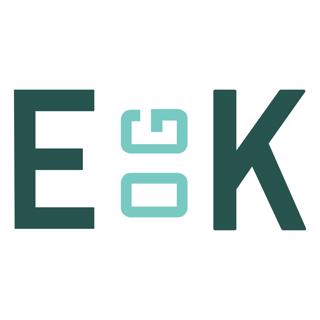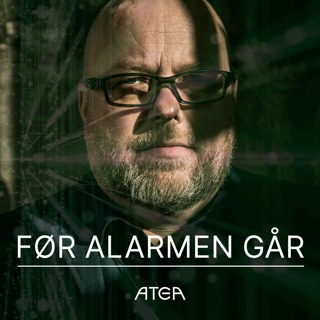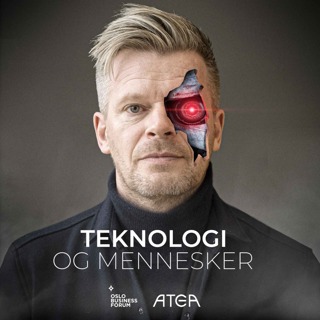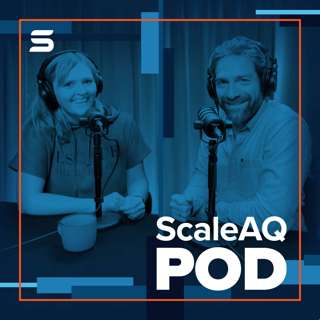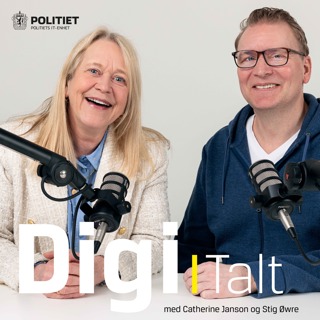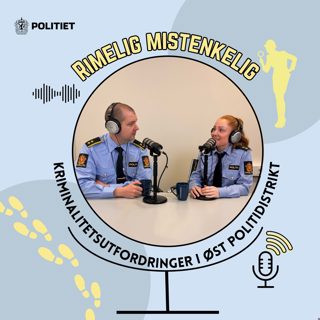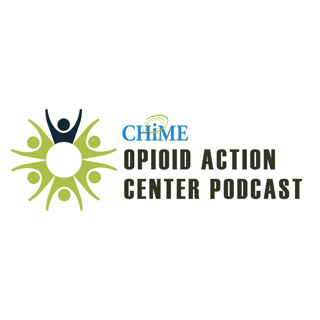
Power of Quality Measures to Improve OUD Care in Emergency Departments
In this episode, join moderator Brea Burmeister and experts Dr. Scott Weiner and Dr. Arjun Venkatesh as they explore how quality measures can transform opioid use disorder (OUD) care in emergency departments. Discover innovative metrics, quality improvement initiatives, and EHR data integration to optimize patient outcomes. Learn about overcoming barriers like stigma and resource shortages and get key recommendations from recent OUD treatment studies. Perfect for healthcare professionals and anyone interested in advancing OUD care.What You'll Learn:Challenges and opportunities of addressing the opioid epidemic in emergency medicineACEP’s work on metrics and the development of quality improvement measuresKey quality initiatives to enhance OUD care and reduce harmThe barriers to adopting these initiatives and strategies to overcome themRecommendations based on recent studies in OUD treatment and medicationMODERATOR: Brea BurmeisterMember, CHIME Opioid Task ForceBio: With 23 years in healthcare, Brea specializes in managing relationships within Integrated Delivery Network (IDN) Health Systems, regional Group Practices, and Specialty Pharmacy accounts. She strengthens value-based care models by developing strategic plans, analyzing performance data, improving care coordination, and implementing process improvements. Brea's work enhances patient outcomes and experiences while reducing costs. Additionally, her volunteer work with the Opioid Task Force reflects her commitment to public health advocacy and community well-being.GUEST: Scott Weiner, MD, MPH, FAAEM, FACEP, FASAMEmergency and Addiction Medicine Physician, Brigham and Women’s HospitalAssociate Professor, Harvard Medical SchoolCo-chair, Clinical Advisory subcommittee, CHIME Opioid Task ForceBio: Dr. Weiner is the McGraw Distinguished Chair in the Department of Emergency Medicine at Brigham and Women's Hospital and an Associate Professor of Emergency Medicine at Harvard Medical School. He is board-certified in emergency medicine and addiction medicine. He is an active researcher, working on multiple projects that focus on prevention and treatment of opioid use disorder.GUEST: Arjun Venkatesh, MD, MBA, MHSChair, Department of Emergency Medicine, Yale University School of MedicineChief, Emergency Medicine, Yale New Haven HospitalBio: Dr. Venkatesh is Chair and Chief of Emergency Medicine at the Yale University School of Medicine and Yale New Haven Hospital. He has received over $ 12 million in funding by the NIH, CMS, AHRQ, and CDC to develop measures and interventions that improve acute care outcomes and value. He has supported CMS’s development of the Overall Hospital Quality Star Ratings, has led the development of quality measures for the Clinical Emergency Data Registry, and is PI of the Emergency Quality Network (E-QUAL). His work has produced over 200 publications and been implemented in numerous national quality and value programs. He is a graduate of Northwestern University School of Medicine, a proud graduate of the HAEMR Class of 2012 often referred to as the Greatest Class Ever, and completed the RWJF Clinical Scholars Program at Yale.Additional Resources:ACEP E-QUAL opioid initiativeCedr
3 Apr 33min

Meaningful Measures for the U.S. Substance Use Crisis: Assessments, Data Standards, and KPIs
In this episode, Dr. David L. Pennington, Ph.D. and Dr. David R. Gastfriend, M.D., DFASAM dive into the U.S. substance use crisis, focusing on assessments, data standards, and key performance indicators. Learn how the ASAM Criteria and ASAM CONTINUUM are transforming addiction treatment through multidimensional assessments and technology integration. Discover the evolving trends in substance use, barriers to treatment, and the role of digital health tools in bridging care gaps. Hear success stories and challenges in implementing these systems and explore future opportunities for digital solutions in mental health care. Join us to uncover meaningful measures that enhance treatment outcomes and patient well-being.What You'll LearnThe significance of the ASAM Criteria for addiction treatment.How substance use trends have evolved and current statistics.Barriers to SUD treatment and how technology aims to overcome them.Strategies for implementing and promoting ASAM CONTINUUM.Success stories and challenges in integrating these systems.Future opportunities for digital health solutions in addiction treatment.MODERATOR: Dr. David L. Pennington, Ph.D.CEO & Clinical Psychologist, Melantha Health Psychology Consulting, PC.Bio: Dr. David L. Pennington, Ph.D., is a licensed clinical psychologist, practicing clinician, and CEO of Melantha Health Psychology Consulting, a firm dedicated to advancing mental health innovation. With extensive experience in both clinical practice and research, he specializes in developing digital health interventions for opioid use disorder and other substance use challenges. His work integrates cognitive neuroscience, evidence-based psychotherapy, and digital technology to create practical solutions that enhance treatment outcomes and patient well-being. As a trusted science advisor and educator, Dr. Pennington is committed to bridging the gap between academic research and real-world application, and he brings his hands-on clinical experience to the Chime opioid network podcast to illuminate emerging trends in addiction treatment and mental health care.GUEST: David R. Gastfriend, M.D., DFASAMCo-Founder & Chief Medical Officer, DynamiCare HealthBio: Dr. Gastfriend is an addiction psychiatrist. At Harvard Medical School, he directed addiction research at Massachusetts General Hospital and was an investigator in the NIDA Cocaine Collaborative Study, NIAAA’s COMBINE Study and NIDA’s Clinical Trials Network. As Vice President at Alkermes, Inc., he directed scientific publications on Vivitrol in clinical, criminal justice and health economics research. His research led most states to endorse the American Society of Addiction Medicine (ASAM) Criteria. His 150 scientific publications include the books The ASAM Criteria and Addiction Treatment Matching. His ASAM CONTINUUM – The ASAM Criteria Decision Engine® and ASAM’s CO-Triage® tools are being adopted nationwide. In 2016, he co-founded DynamiCare Health, a nationally-scalable technology for Contingency Management and predictive analytics, winning awards from Harvard Business School, the Commonwealth of Massachusetts, the Governor of Ohio, and the New York Times. He has consulted to governments in Belgium, China, Iceland, Israel, Norway, Russia and the U.S.
1 Apr 26min

Interoperability and HIE Series: New Jersey Innovation Institute
Explore advancements in interoperability and Health Information Exchange (HIE), addressing issues like the opioid crisis. Learn about EHR adoption strategies, NJII's role, and future trends in healthcare data sharing.What You'll Learn:How seamless data sharing between healthcare providers is achievedChallenges and solutions in EHR interoperabilitySupport for public health through real-time data trackingImpact of patient-centered data access on treatment and engagementEmerging technologies in healthcare data interoperabilityMODERATOR: Bill CioffiClient Partnership Executive, Nordic HealthcareBio: Bill Cioffi is a seasoned healthcare IT executive and Client Partnership Executive at Nordic Healthcare, focusing on client relationships and strategic growth. With over 15 years in healthcare IT leadership and 25+ years in IT infrastructure, he has led digital transformations. As former CIO at CenCal Health, he oversaw IT strategy for Medi-Cal services, led their first 3-Year IT Strategic Plan, and established an ITSM Service Desk. Previously, as CIO at North Sonoma County Healthcare District, he implemented their EHR system and maintained operations during the 2017 Santa Rosa Tubbs fires. Bill is Co-chair of the CHIME OTF Technology and Interoperability Subcommittee and a community volunteer with Food Share. He holds a Master of Public Policy and Administration from California Lutheran University.GUEST: Jennifer D’AngeloChief Operating Officer & Executive Vice President of Healthcare, New Jersey Innovation Institute (NJII)Bio: Jennifer D’Angelo is a seasoned leader in healthcare technology and management with over 20 years of experience. As the Chief Operating Officer and Executive Vice President of Healthcare at the New Jersey Innovation Institute (NJII), she plays a crucial role in driving the organization's mission through innovative and data-driven strategies. Jennifer oversees divisions focused on AI/ML, Defense, Entrepreneurship, Healthcare, and Learning & Development, which accelerate technology, foster innovation, and drive workforce development. Her leadership leverages the vast resources of an R-1 university and builds industry-centric ecosystems to positively impact New Jersey's economy. As the EVP of the Healthcare division, Jennifer oversees federal and state grant-funded programs and manages the New Jersey Health Information Network (NJHIN), facilitating statewide patient data exchange to reduce healthcare costs and improve population health.GUEST: Dustin HuffordSenior Vice President & Chief Information Officer, Cooper University Health CareBio: Mr. Hufford, with 15 years in healthcare IT, has held leadership roles including VP at Cooper Applications and CIO at Memorial Health Care. He has extensive experience in IT management, EHR implementation, and consulting. At Promedica Health, he was Assistant VP of Revenue Cycle and Business Systems, overseeing the implementation of their EHR system. He's led major IT initiatives like telemedicine and cloud migrations. Currently, he is driving digital transformation and leading the Cooper Innovation Center. Mr. Hufford holds a degree in Information Sciences and is pursuing an Executive MBA from Drexel University.
28 Mar 28min

Developing a MAT Order Set for a Multidisciplinary Care Team at UC San Diego Health
Join us in this episode as we explore the groundbreaking Medication for Addiction Treatment (MAT) Order Set at UC San Diego Health. This innovative system helped them earn CHIME's top "Digital Health Most Wired" Level 10 status in 2024. What You'll Learn: The motivation behind the creation of UC San Diego's MAT Order Set. How interdisciplinary collaboration led to a comprehensive care model. Implementation details and integration of additional screenings. Data demonstrating reduced hospital readmissions and increased buprenorphine usage. Challenges and lessons learned during the implementation process. Educational impacts on medical resident training and future directions. MODERATOR: Gregory R. Polston, MD Clinical informaticist, Associate Medical Director, Center for Pain Medicine, UC San Diego Health Section Chief of the pain service, VA Medical Center La JollaBio: Dr. Polston is a board-certified anesthesiologist with expertise in pain medicine and clinical informatics at UC San Diego Health. He serves as Associate Medical Director at the Center for Pain Medicine and Section Chief of the pain service at the VA Medical Center La Jolla. Dr. Polston specializes in opioids and risk monitoring for acute and chronic pain, promoting a comprehensive approach to pain management that involves patient engagement and diverse therapeutic methods. His research focuses on chronic opioid therapy, placebos, and electronic medical records.GUEST: Laura Bamford, MD, MSCE Clinical Professor of Medicine Division of Infectious Diseases and Global Public Health Clinical Professor of Medicine Medical Director Owen Clinic Co-Director Clinical Investigations Core San Diego Center for AIDS Research Division of Infectious Diseases and Global Public Health University of California, San Diego Bio: Laura completed her Internal Medicine residency at Columbia University Medical Center and Infectious Diseases fellowship at the Hospital of the University of Pennsylvania where she also received a Master of Science in Clinical Epidemiology. She's a Clinical Professor of Medicine in the Division of Infectious Diseases and Global Public Health and Medical Director of the HIV Medicine Owen Clinic. Her clinical and research interests include HIV and HCV treatment and prevention in people who use drugs. She's passionate about delivering patient-centered care and research with a low barrier and harm reduction approach. With funding from the Ryan White HIV/AIDS Program Part F Special Projects of National Significance, she founded a HIV primary care clinic in 2013 within Philadelphia’s syringe service program. She was selected as a member of the Mayor’s Task Force to Combat the Opioid Epidemic in Philadelphia in 2017 and testified in federal court in 2019 as a fact witness on behalf of Safehouse, Philadelphia’s proposed opioid overdose prevention site. She currently provides substance use disorder treatment integrated into HIV primary care at Owen Clinic and is a member of the UCSD Addiction Medicine/Pain Medicine Committee and the UCSD Opioid Use Disorder Task Force. She also serves as the coordinator of the newly mandated substance use disorder rotation at UCSD for all Internal Medicine residents and was recently appointed to the Board of Directors at Stepping Stone San Diego which specializes in substance use treatment in the LGBTQ+ community. GUEST: Carla Marienfeld, MD, DFAPA, FASAM Clinical Professor, University of California, San Diego Bio: Carla Marienfeld, MD, DFAPA, FASAM, Clinical Professor at UC San Diego, Medical Director Substance Treatment and Recovery (STAR) Program, Program Director UC San Diego Addiction Psychiatry Fellowship is board-certified in psychiatry, addiction psychiatry, and addiction medicine. She has authored over four dozen publications and edited four addiction treatment related books.
27 Mar 30min

Tech-Driven OUD Screening Protocols and Bridge Clinic at SUNY Upstate University Hospital
In this podcast episode, Corey Zeigler, CIO of Helio Health, and Dr. Ross W. Sullivan from SUNY Upstate Medical University discuss an innovative program tackling opioid use disorder (OUD). The episode covers the implementation of a universal screening protocol, the success of the two-item conjoint screen (TICS) method, and the impact of the Bridge Clinic initiative. Dr. Sullivan shares insights on overcoming challenges and achieving improved patient outcomes, including reduced emergency department visits. Discover how healthcare IT is playing a crucial role in transforming addiction treatment and addressing the opioid crisis.What You'll Learn:Introduction to SUNY Upstate's Comprehensive Program: Gain insights into a holistic approach combining universal screening protocols and dedicated clinics to address opioid use disorder (OUD).Effective Screening Methods: Understand the implementation and efficacy of the two-item conjoint screen (TICS) method for identifying OUD across diverse healthcare settings like outpatient and emergency departments.Implementation Challenges and Solutions: Learn about the obstacles encountered while rolling out a universal screening protocol in a large healthcare system and strategies for overcoming them.Impactful Results: Discover the tangible outcomes of the program, such as reduced length of inpatient stays and a significant decrease in opioid-related ED visits.Collaborative Care Model: Explore how dedicated OUD teams collaborate with existing patient care teams and social workers to enhance treatment and post-hospitalization care.Sustainability and Future Expansions: Get acquainted with the plans for maintaining and expanding successful initiatives like the Bridge Clinic and TICS screening protocol.MODERATOR: Corey ZeiglerCIO, Helio Health Bio: Corey has been with Helio Health for about 5 years. They are a large substance use and behavioral health organization with 70 different locations throughout Central New York spanning from Albany in the eastern side to Rochester on the western side, down to the Pennsylvania border to the south and almost to Canada in the North. Their services include inpatient, outpatient, residential, affordable housing, homelessness and a lot of the health and human services functions in New York State. GUEST: Ross W. Sullivan, MD, FASAM Executive Medical Director, Helio Health Assistant Assistant Professor, Emergency Medicine, Toxicology, Addiction Medicine, SUNY Upstate Medical UniversityBio: Dr. Sullivan is the Executive Medical Director at Helio Health in Central New York and a recognized expert in addiction medicine. He completed his medical education, residency in Emergency Medicine, and toxicology fellowship at SUNY Upstate Medical University. Dr. Sullivan also serves as a faculty member in Emergency Medicine and directs the Medical Toxicology fellowship at SUNY Upstate. He has co-authored several publications on overdose and addiction and contributes his expertise to various advisory panels and workgroups, including NY-OASAS and the NY-DOH buprenorphine work group. Additionally, he is the Treasurer and Board Member of the New York Society of Addiction Medicine (NYSAM).
10 Mar 18min

Interoperability and HIE Series: HealtheConnections
This podcast episode is part of a series focused on the critical issue of the opioid epidemic, and how healthcare IT and health information exchanges (HIEs) can bridge interoperability gaps. Explore how HealtheConnections is enhancing data exchange and interoperability to tackle opioid treatment and prevention. The podcast provides a look into the innovative use of emerging technologies, addresses regulatory impacts, and highlights the role of community data in reshaping behavioral healthcare.Things You'll Learn:The vital role of HIEs in Central New York’s healthcare ecosystem. Key technologies used by HealtheConnections for supporting interoperability and opioid treatment programs. Emerging trends and technologies expected to impact the interoperability landscape in the next 3-5 years. How regulatory changes to 42 CFR Part 2 are affecting HIEs and their stakeholders. Methods used by HealtheConnections to support local health departments in monitoring and reporting opioid overdoses. Real-world examples of innovative processes enhancing overdose tracking and prevention. The impact of community data on person-centered care in behavioral healthcare. How HL7v2 feeds and other technologies are improving interoperability at Helio Health. MODERATOR: Bill Cioffi MPPA, CHCIO, ITILClient Partnership Executive, Nordic Healthcare Bill is a seasoned healthcare IT executive and the Client Partnership Executive at Nordic Healthcare, where he focuses on strengthening client relationships, expanding portfolios, and driving strategic growth. With over 15 years of experience in healthcare IT leadership and 25+ years in IT infrastructure and operations, he has a proven track record of leading digital transformation initiatives.GUEST: Elizabeth AmatoPresident and CEO, HealtheConnections A 16-year veteran of the health IT field, with focused expertise in program development and design, advocacy, research, and source funding. For the past 12 years, she has held various leadership positions in the New York state HIE space, including the past 3 years serving as the Chief Operating Officer at NY’s second largest HIE, HealtheConnections. As of January 1st she assumed the role of President & CEO at HealtheConnections. Elizabeth is a passionate advocate for improving the health of communities through HIE, data-centric technology, and clinical-community partnerships. GUEST: Liana ProsonicAssociate VP, Finance and Compliance Liana is a certified public accountant (CPA) and worked for 8 years in public accounting before transitioning to management accounting in 2016. They worked as Director of Accounting Operations at Loretto, a long-term post-acute care provider, for 5 years, and moved into a new role as Director of Finance and Compliance at HealtheConnnections, a HIE, in 2021. In their current role as AVP of Finance and Compliance at HealtheConnections they oversee the financial operations and compliance program. They also teach accounting as an adjunct professor at York College of Pennsylvania. GUEST: Corey ZeiglerCIO, Helio Health Corey has been with Helio Health for about 5 years. They are a large substance use and behavioral health organization with 70 different locations throughout Central New York spanning from Albany in the eastern side to Rochester on the western side, down to the Pennsylvania border to the south and almost to Canada in the North. Their services include inpatient, outpatient, residential, affordable housing, homelessness and a lot of the health and human services functions in New York State.The CHIME Opioid Task Force (OTF) was launched in early 2018 with a simple mission: to turn the tide on the opioid epidemic using the knowledge and expertise of the nation’s healthcare IT leaders. While our mission is simple, achieving it is not. Opioid addictin is a complex disease that requires long-term, if not lifetime, care from well-informed clinicians who are supported with easy-to-use and reliable tools.
18 Feb 28min

Interoperability and HIE Series: Manifest MedEx Part 2
In Part 2 of this two-part series, we continue the conversation about how Manifest MedEx ensures seamless data sharing across diverse healthcare providers, including opioid treatment and mental health services, while adhering to strict privacy and security standards such as HIPAA. We explore successful integration examples that have aided in combating the opioid crisis, discuss the significant challenges of achieving interoperability between different EHR systems, and examine the strategies Manifest MedEx has employed to overcome these obstacles and improve care coordination.MODERATOR: Bill Cioffi, MPPA, CHCIO, ITIL Chief Information Officer, C10 Consulting Bill Cioffi is also an Advisor at StarBridge Advisors, LLC, and is a nationally recognized leader in health IT. With over 15 years of experience in healthcare IT management, Bill has served as CIO at CenCal Health and North Sonoma County Healthcare District, where he spearheaded strategic technology initiatives, EHR implementations, and IT infrastructure improvements.GUEST: Erica Galvez Chief Executive Officer, Manifest MedEx Erica Galvez is CEO of Manifest MedEx (MX), California’s largest nonprofit health information organization, and has extensive experience in health information exchange (HIE) and interoperability. She has been with Manifest MedEx since 2017, previously serving as Chief Strategy Officer and Chief of Staff. She has been instrumental in guiding the organization’s growth and expansion while ensuring MX delivers increasing value to participants. Erica has helped MX achieve a 500 percent increase in health records shared across the health data network. MX now shares information for 38 million Californians across more than 140+ hospitals, 17 health plans, and 2500+ ambulatory providers. Erica came to the HIE space through years of healthcare quality and patient safety research at The Joint Commission. Before joining MX, Erica led the HIE efforts at Aledade that tripled the company’s hospital connectivity and evolved the use of health information to reduce avoidable hospitalizations and emergency department encounters. Prior to Aledade, she led the Office of the National Coordinator for Health IT’s (ONC’s) Interoperability Portfolio, held a leadership position as one of the directors of ONC’s State HIE Program, and served as the program manager for AHIMA’s State-Level HIE Consensus Project. GUEST: Josh Longiaru IT Director, United Services, Inc.As a champion for behavioral health and integrated care, Josh is passionate about advancing the conversation on interoperability and its critical role in transforming patient outcomes. With over 20 years’ experience in leading innovative programs at United Services and fostering collaboration among healthcare providers, he is committed to bridging gaps between physical and behavioral health systems to foster comprehensive care solutions. His hope is to get to a point where everyone has access to integrated care models that prioritize the whole person, ensuring that stigma and barriers are eliminated so that every patient can access the compassionate support they deserve.
10 Feb 25min

Innovative Tech Solutions for Methadone Treatment Access and Efficiency
Join us as we delve into innovative solutions transforming methadone dispensing at opioid treatment provider clinics. This episode unpacks revolutionary capabilities that enhance communication and treatment for clinicians and patients. Learn how Opio is redefining interactions with opioid providers and their systems, spotlighting early collaborations, and sharing initial successes. Discover how their creative models are improving information exchange between providers, patients, and payers, and explore strategic partnerships and growth plans.What You'll Learn AboutHow a robotic solution is innovating methadone dispensing in opioid treatment clinics.The unique capabilities that improve communication between clinicians and patients.Details of interoperability with major healthcare systems to enhance information exchange.Strategies for ensuring HIPAA-compliant infrastructure in opioid care settings.Insights into partnerships and growth plans within the healthcare technology space.MODERATOR:Taylor McPartland CEO, ScaleHealthTaylor, a native of Northern California, began his entrepreneurial journey by co-founding his first company in 2010, where he served as a leader for the following 6 years. Throughout this period, he developed a profound passion for harnessing innovation to tackle the systemic challenges our society faces on a daily basis. Motivated by this mission, Taylor established ScaleHealth in 2018 with a vision to create a global health innovation ecosystem that ensures universal access to cutting-edge healthcare solutions, promoting overall well-being. Since its inception, ScaleHealth has played a pivotal role in scaling startups worldwide while enabling health systems and partners to save time and money while accelerating impact and outcomes.GUEST: Sam Wilson Chief Operating Officer, OpioSam has spent her career tackling big problems in behavioral healthcare. As the COO of Opio, she's working to support Opioid Treatment Programs (OTPs) through robotic automations and software solutions. Previously, she co-founded Confidant Health, a multi-state behavioral health tech platform focused on value-based care and led the development of ATLAS, the nation’s first quality rating system for addiction treatment programs while working at Shatterproof, a national nonprofit dedicated to reversing the addiction crisis. Sam also worked on state and federal policy to expand access to evidence-based addiction treatments at the Pew Charitable Trusts in Washington DC. She also advises several startups in the behavioral and women’s health spaces, and works as a doula in her community. She is a mom and avid adventure seeker.The CHIME Opioid Task Force (OTF) was launched in early 2018 with a simple mission: to turn the tide on the opioid epidemic using the knowledge and expertise of the nation’s healthcare IT leaders. While our mission is simple, achieving it is not. Opioid addictin is a complex disease that requires long-term, if not lifetime, care from well-informed clinicians who are supported with easy-to-use and reliable tools.
10 Feb 22min









